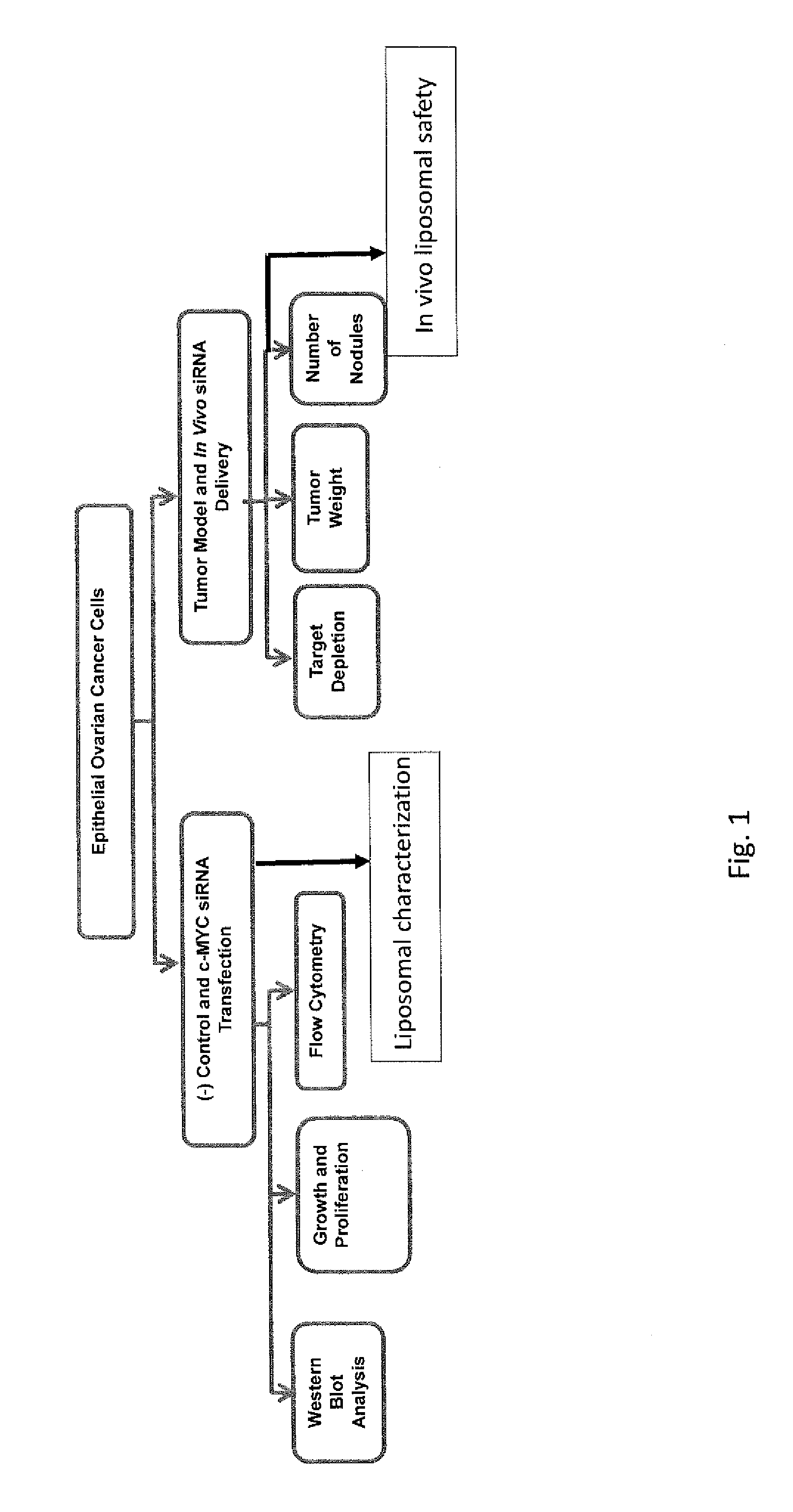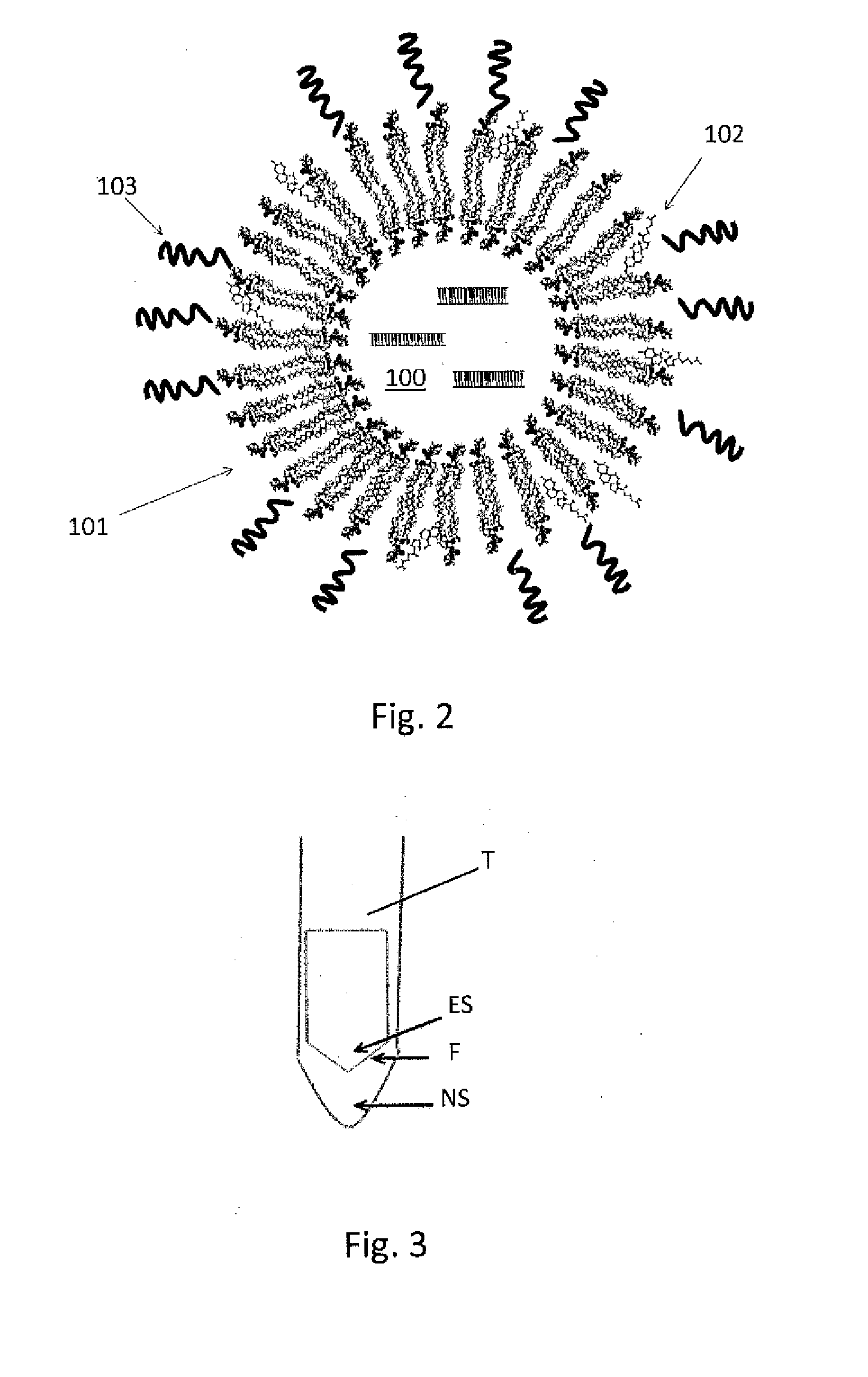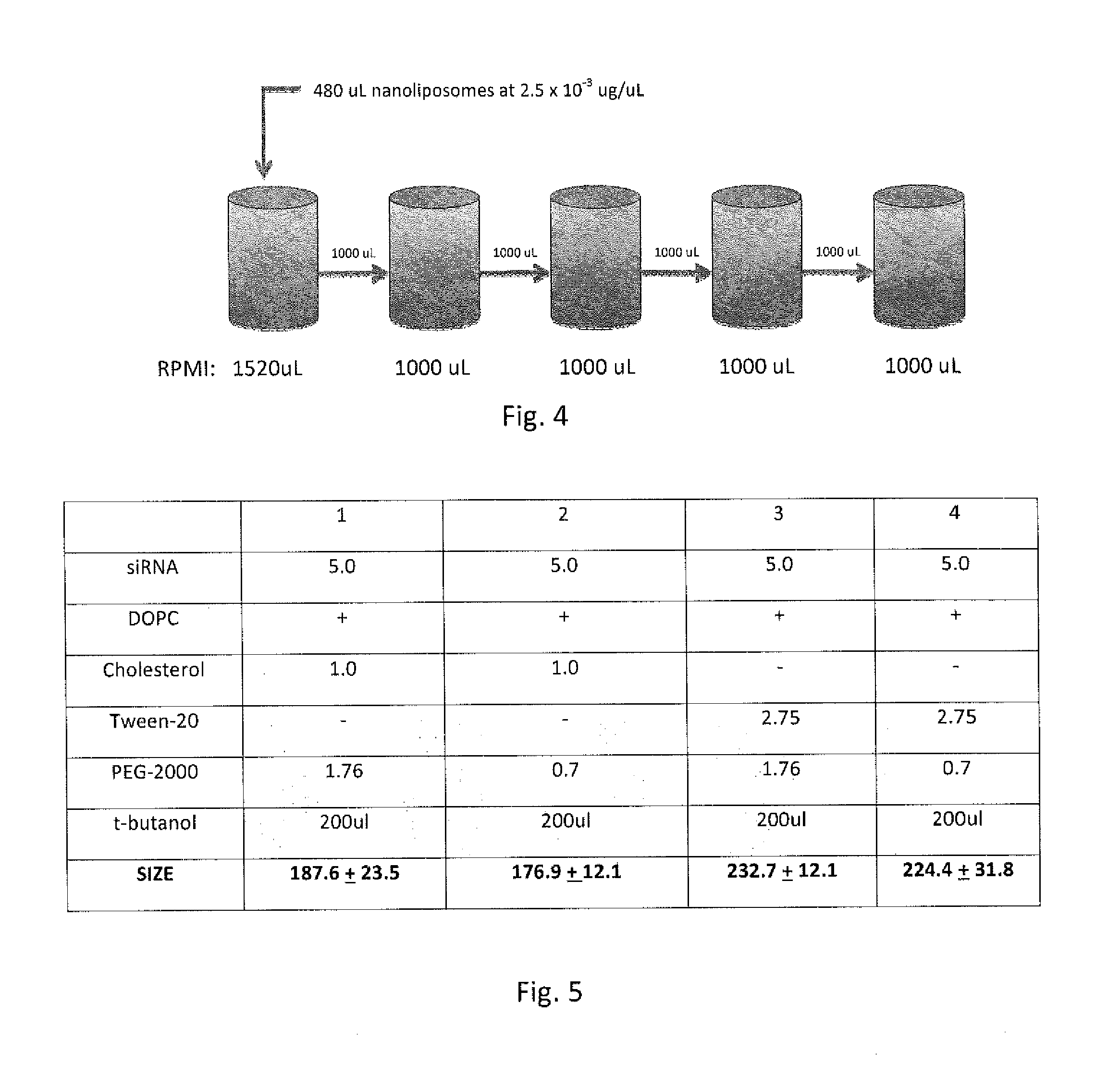Nanoliposomal c-MYC-siRNA Inhibits In Vivo Tumor Growth of Cisplatin-Resistant Ovarian Cancer
a technology of cisplatin-resistant ovarian cancer and nanoparticles, which is applied in the direction of organic active ingredients, heavy metal active ingredients, biochemical equipment and processes, etc., can solve the problems of relapse, recurrence, and failure of treatment, and achieve significant cell growth arrest, decrease tumor weight and tumor nodules, and inhibit cell proliferation
- Summary
- Abstract
- Description
- Claims
- Application Information
AI Technical Summary
Benefits of technology
Problems solved by technology
Method used
Image
Examples
Embodiment Construction
[0044]FIG. 1. Schematic diagram of experiments performed for the fully liposomal characterization and uses. A schematic representation of the nanoliposomes is shown in FIG. 2. The nanoliposomal formulation presented comprises lipids and c-MYC-siRNA with a preferred ratio, for example:
[0045]1 μg c-MYC-siRNA 100: 10 μg DOPC 101, cholesterol 40% 102 (w / w) DOPC, 10% PEG-2000 103 (mol / mol) of DOPC.
[0046]FIG. 2 is a representation of the nanoliposomes. Specific amounts of these components are mixed in excess of ter-butanol as the dissolvent. The mixture is frozen at −80° C. or lower. Then, tubes are lyophilized to evaporate the dissolvent (ter-butanol). The lyophilized power is dissolved in DPBS. For liposomal characterization and for mice injections liposomes are vortexed (2-5 minutes) or sonicated (10 min).
[0047]Methods
[0048]Nanoliposomal Characterization
[0049]Four c-MYC-siRNA-contained nanoliposomes formulations were prepared as described above. Then, liposomes were resuspended in DPBS...
PUM
| Property | Measurement | Unit |
|---|---|---|
| size | aaaaa | aaaaa |
| concentration | aaaaa | aaaaa |
| CIS resistance | aaaaa | aaaaa |
Abstract
Description
Claims
Application Information
 Login to View More
Login to View More - R&D
- Intellectual Property
- Life Sciences
- Materials
- Tech Scout
- Unparalleled Data Quality
- Higher Quality Content
- 60% Fewer Hallucinations
Browse by: Latest US Patents, China's latest patents, Technical Efficacy Thesaurus, Application Domain, Technology Topic, Popular Technical Reports.
© 2025 PatSnap. All rights reserved.Legal|Privacy policy|Modern Slavery Act Transparency Statement|Sitemap|About US| Contact US: help@patsnap.com



